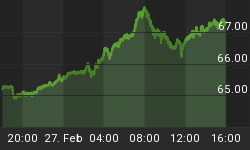For the second time, Hong Kong has officially suspended trading in shares of Evergrande, China’s second-largest property developer but also the world’s most indebted property developer.
According to a notice to the stock exchange, Evergrande and all its units suspended trading in Hong Kong on Monday morning.
Expanding by borrowing aggressively in the past two decades, Evergrande has grown into a huge conglomerate that covers everything from bottled water and movie production to electric cars. It even has a soccer team
That path has turned it into one of the world’s most indebted real estate firms with $300 billion in liabilities. The company’s management made it clear that it would not be able to pay creditors on time.
The trading suspension -- the second this year -- comes ahead of an expected $2 billion repayment obligation this week and another next month of $1.4 billion. Late last year, the company failed to meet interest payments to international investors.
In January, Evergrande announced plans to come up with a preliminary restructuring proposal within six months. That debt restructuring would be the largest to ever go down in China.
The risk committee for Evergrande is now dotted with figures representing Chinese state-owned companies.
Even 20 years ago, analysts were sounding the alarm bells about Evergrande’s business practices; but the real trouble hit last year, when Beijing unveiled new rules to control the amount owed by big real estate developers
Last summer, Evergrande started to experience severe liquidity issues, missing payments on international bonds in September. The work on many of its construction projects ground to a halt and the company scrambled to raise cash to pay workers and creditors.
Creditors have filed hundreds of lawsuits and some local governments have imposed restrictions on its projects. Retail investors, vendors and even employees of Evergrande gathered outside the company’s offices to demand repayment of loans and other financial products. And while this may seem par for the course, and expected, it’s worth noting that this level of social unrest is uncommon in China.
Over the past year, the company’s stock has plunged 87%, and its debt has been downgraded, with banks refusing to lend it more money. In December, Fitch, one the world's biggest credit rating agencies, declared the company in default.
The US Federal Reserve warned in November that trouble in Chinese real estate could damage the global economy. Even the International Monetary Fund (IMF) warned that the property funding crisis in China could have negative effects on global markets.
Chinese authorities have been trying to contain the fallout, reassuring the public that Evergrande's problems can be contained–even without a full bailout. In December, China’s central bank pumped $188 billion into the economy, in a bid to counter the real estate slump.
Even the company’s boss, Hui Ka Yan, who used to be the richest man in the country, had been requested to dip into his personal wealth to keep Evergrande afloat.
















